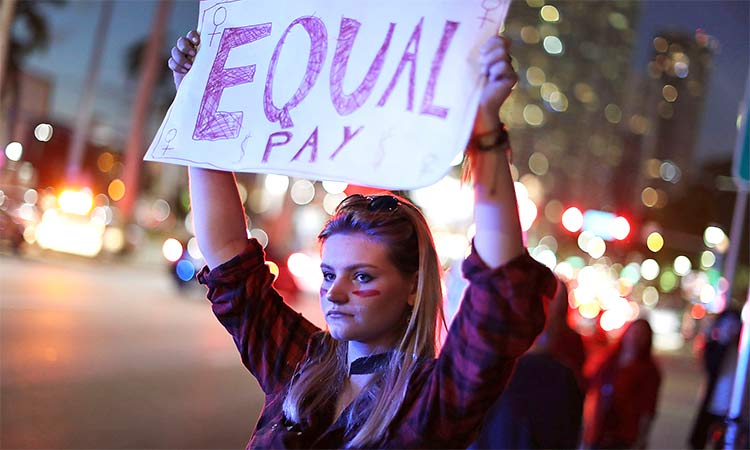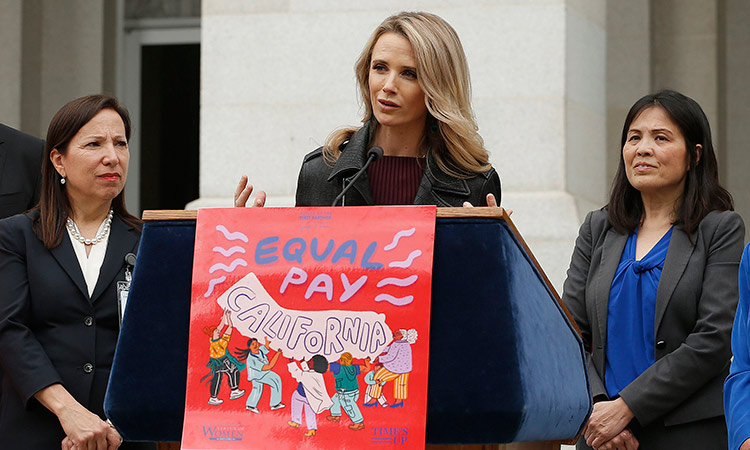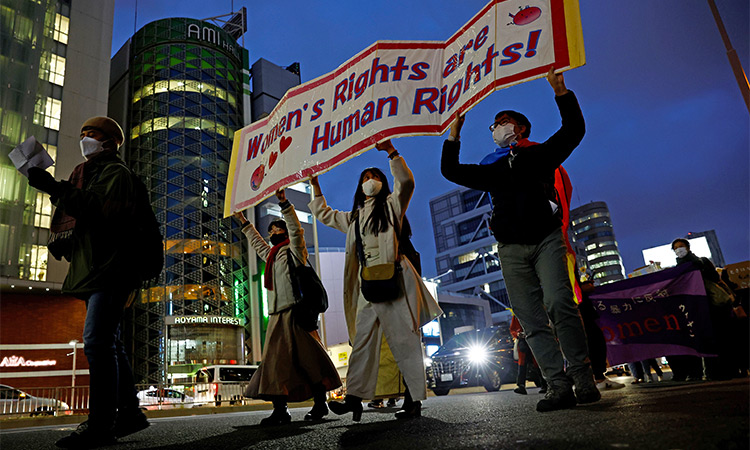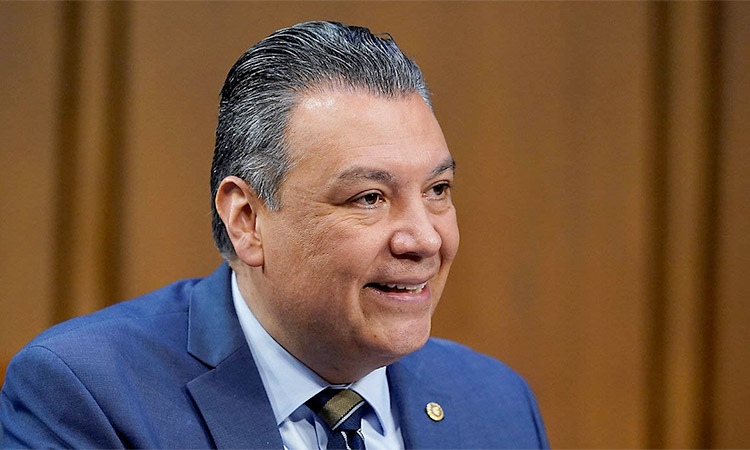Women still don’t have equal pay or representation

Illustrative image.
Rachel Shteir, Tribune News Service
Betty Friedan was just a fiery radical with a bad temper. It’s convenient to believe this. But at a moment when many of the rights for women she gained are being overturned, it’s time to reconsider common wisdom about her character. Friedan, a towering figure in the women’s movement who died in 2006, wrote the 1963 groundbreaking book “The Feminine Mystique” and co-founded the National Organization for Women and the National Women’s Political Caucus. Fifty years ago, on May 1, 1973, Friedan participated in the first public airing of the pros and cons of the Equal Rights Amendment at Capen Auditorium in Normal, Illinois, with Phyllis Schlafly, founder of the STOP ERA movement. Schlafly wanted to destroy the amendment. Friedan worried that without it passing, women’s rights — and the movement itself — would wither. The stakes were high. In 1973, 30 states had already ratified the ERA; eight more were needed to enshrine it in the Constitution.
As we all know, Schlafly would play on women’s fears to slow the amendment’s momentum; by 1982, in part thanks to her efforts in convincing several states to rescind ratification, the ERA did not ratify. It also did not die. Thirty-five years later, after #MeToo, several states including Illinois began ratifying it. However, procedural complications and blocks from the right continue. On April 27, a vote in the US Senate did not secure enough support to end the filibuster to start a debate on it. (Every Republican voted against it except Sens. Lisa Murkowski and Susan Collins.) If you’re trying to figure out why it’s so hard to protect women’s rights in the Constitution, one answer can be found in this half-century-old debate in Illinois and the derision aimed at Friedan, especially since her death. The popular 2020 Hulu show “Mrs. America” in part focuses on Schlafly, as played by the elegant Cate Blanchett. In an article published last week, a Politico writer blames Friedan’s slurs, which in 1973 were reprinted in The New York Times, for tanking the amendment. “The comments didn’t help the cause of the ERA, which has yet to become a constitutional amendment,” Shia Kapos writes. Sure, in the 1973 debate, Friedan called Schlafly “a traitor to your sex” and an ‘’Aunt Tom” and said she would ‘’like to burn (Schlafly) at the stake.” Today, those words would get you canceled. But at a moment when the rights that Friedan helped secure are in jeopardy, it’s time to tell the full story of this debate. The two adversaries share more than is commonly thought. Both had Illinois connections. Schlafly lived in Alton, and Friedan was born in Peoria. Both were mothers, and both believed that the women’s movement had gone too far. But in Normal on May 1, 1973, their differences were most in evidence. Friedan reminded her audience that a broad coalition of women supported the ERA — “the League of Women Voters, YWCA, church grandmothers, granddaughters, black and white” — in an effort to distance the amendment from radical feminists whom the media associated with the women’s movement. Turning to a protectionist argument, Schlafly claimed that the amendment would hurt women’s status as mothers and force them into the draft and to manual labor.
Initially, Friedan owned the room. Hecklers interrupted Schlafly, swearing and jeering, and objected to her calling them “girls.” Friedan plowed on. She aimed to strike down Schlafly’s characterization of the ERA as radical, which she knew would alienate many moderates and Midwesterners needed to sway politicians on the fence. So she pointed out that Toni Adams, an ERA supporter and a Democratic candidate for the Illinois General Assembly the previous year, had nearly beaten incumbent Gerald Baker. Friedan, who had spent a decade working on reforming laws to support women in every arena, was a liberal. She later chastised Schlafly for criticising the women’s movement, since she had benefited from its gains by, for example, attending law school. But in Normal, Schlafly continued to use scare tactics to defeat the ERA, telling the audience that the amendment would force them to lose status. “The women of this country don’t want to be lowered to equality,” she said. Friedan, who believed that a good way to galvanize a movement in danger of losing its force was to create an enemy, accused STOP ERA of receiving funding from members of the ultraconservative group the John Birch Society, a charge that Schlafly always denied. (A few months later, Friedan would tell a Boston Globe reporter: “You can’t tell me these women earned so much money by holding cake sales.”) Schlafly countered by arguing that women had won so many rights that the ERA was no longer necessary.







